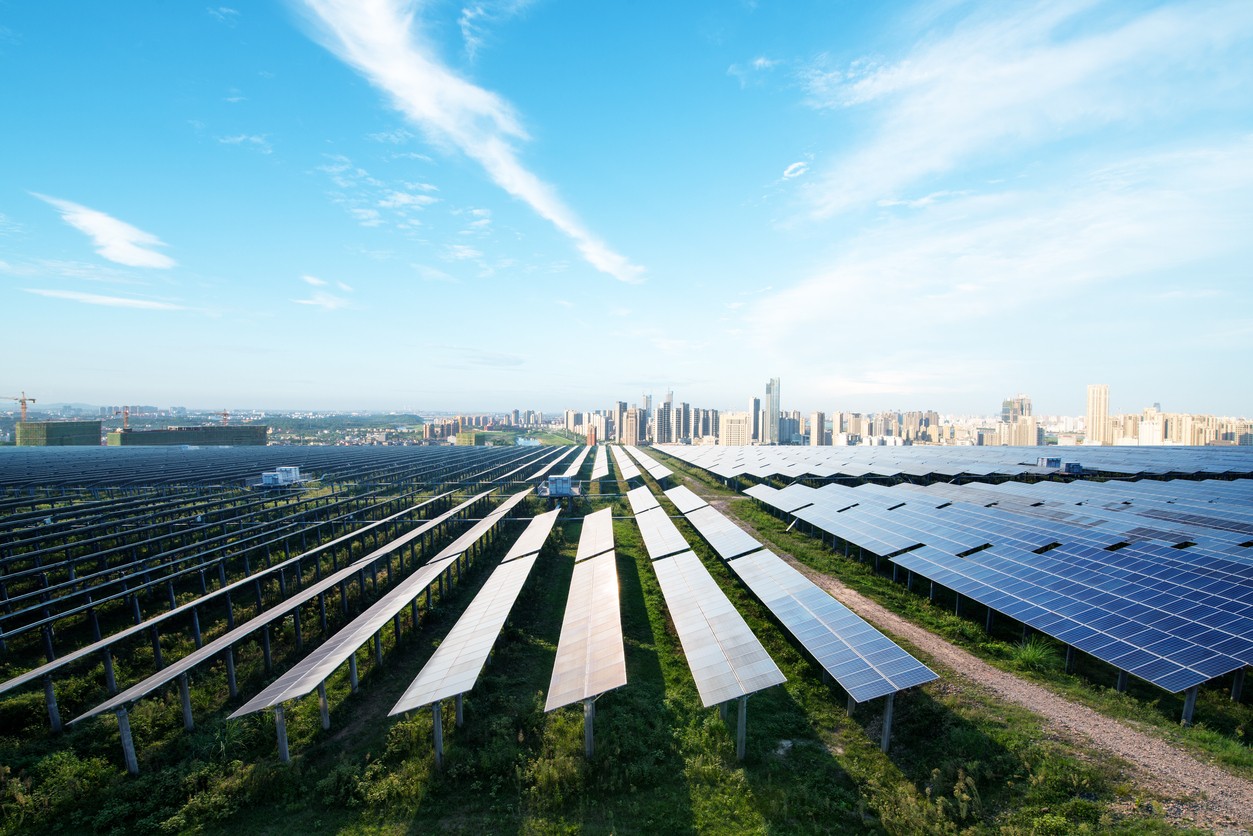
Absolutely they are worth it. As a California solar contractor, Coldwell Solar has helped many California companies decrease or eliminate their monthly expense for electricity.
While decreasing costs is a good thing, it is not the only positive benefit for commercial properties that go solar. California is a dynamic energy market and for the last five years it is challenging to do business during fire season or during the colder months of the year. Those challenges also include issues like Public Safety Power Shutoffs.
Going solar means greater energy independence, lower cost for electricity, tax credits and incentives, and the fact that you control your energy production for your company.
What can you do with the extra money you save each month?
How Solar Energy Can Benefit Your Business
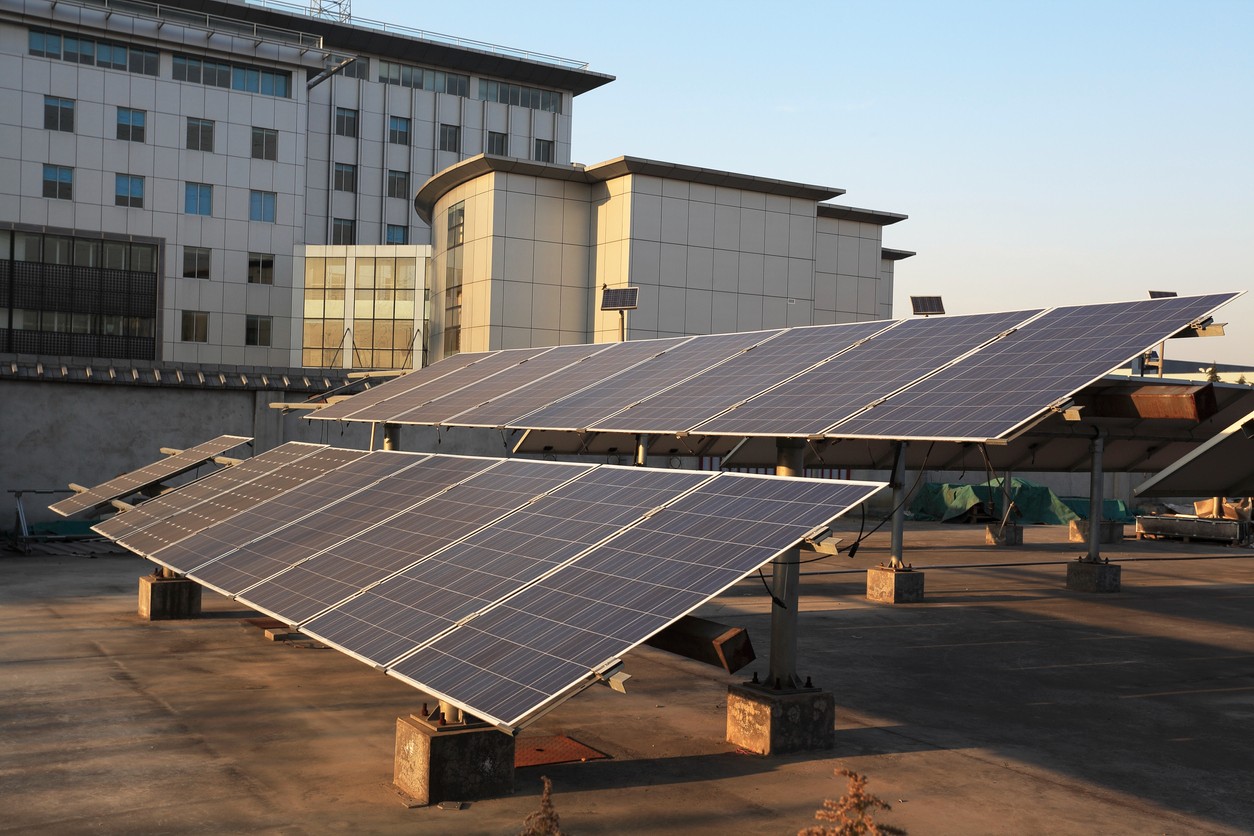 Commercial solar panels are larger and produce more energy than a small panel for a residential unit. Most commercial solar panels have 96 PV cells and are about the size of a standard sheet of plywood. The larger size enables the production of electricity in volumes that support commercial electrical usage. What does that mean? It means that commercial solar grids can produce electricity in the megawatt range.
Commercial solar panels are larger and produce more energy than a small panel for a residential unit. Most commercial solar panels have 96 PV cells and are about the size of a standard sheet of plywood. The larger size enables the production of electricity in volumes that support commercial electrical usage. What does that mean? It means that commercial solar grids can produce electricity in the megawatt range.
Residential solar arrays produce energy in the kWh range, but a commercial solar array can produce greater amounts of electricity, and they eliminate the need to worry about when you use electricity. All energy produced by the array costs the same amount. Because you control energy production and usage, you can balance energy consumption to meet demand without worrying about tiered pricing or peak hours. Energy independence means you are 100% in control.
More Companies are Turning to Solar
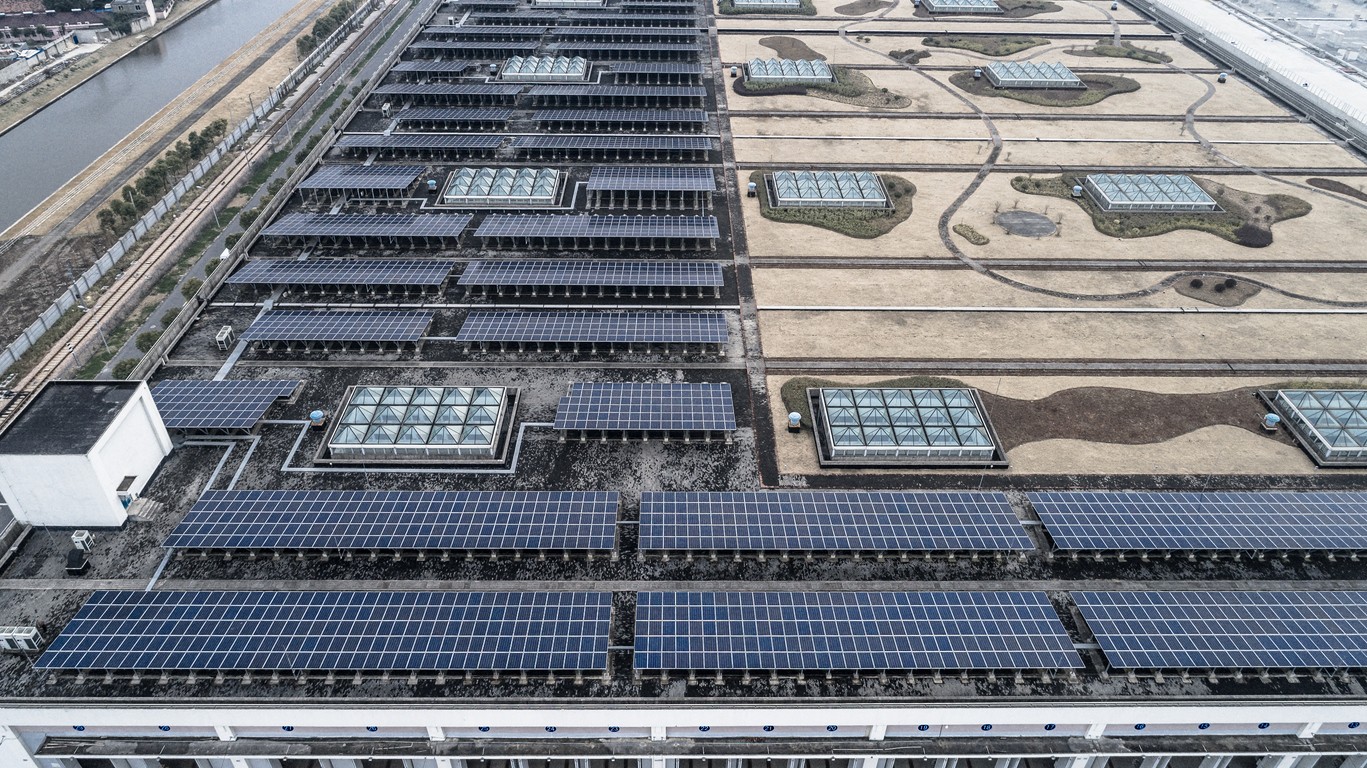 More and more companies are going solar. The world is shifting towards solar energy because the supply is unlimited. With a large percentage of traditionally generated electricity coming from the burning of fossil fuels, solar energy is a boon. It is environmentally friends, clean, and once you pay for your solar array, it is 100% free. There are many other benefits for companies that go solar. Those include:
More and more companies are going solar. The world is shifting towards solar energy because the supply is unlimited. With a large percentage of traditionally generated electricity coming from the burning of fossil fuels, solar energy is a boon. It is environmentally friends, clean, and once you pay for your solar array, it is 100% free. There are many other benefits for companies that go solar. Those include:
When your business runs on solar energy, it is no longer tied to the fluctuations in price.
- Solar energy is a fixed price based on supply – aside from the cost of the array, solar energy is pretty much free.
- You have only to look at the price of gasoline in today’s market to see a big advantage of going solar.
- Solar is not dependent upon foreign governments who can limit the supply of oil to raise the price you pay at the pump (gas.) Nobody can limit the amount of sunshine that strikes your panels.
- The cost per barrel is not a factor in determining the cost of solar energy and that gives you the freedom to control the energy production and usage for your company.
- There is limited infrastructure, so solar energy is available in places where the utility grid would need to expand. You no longer have to pay the utility company or a contractor to install power linkage to the utility grid. That process means that you have more options when choosing a location and off-grid properties in undeveloped area are often cheaper by the acre.
- Solar energy is generally not affected by the rolling blackouts and Public Safety Power Shutoff disconnects that many grid-tied commercial properties in California must deal with each summer and fall. It means installing a shutoff breaker to keep your smart meter from shutting down your solar array during a blackout, but that is very doable.
Solar is becoming cheaper, more accessible, and more advanced. The technology that develops modern solar components is getting cheaper. The result is that the price of solar is dropping, while the cost of solar per kWh may increase, those costs are the result of structural design or the use of advanced tech during the design and installation of the array.
That explanation may sound double-sided, and it is in part. In California, the cost of going solar is dropping. The average cost for a solar panel is not as high as it was a few years ago. The cost of solar components has also fallen. There are so many brands of inverters, controllers, and other gadgets that competition between brands is forcing the cost down.
Five years ago, people were excited when a solar panel produced 250 kw per hour. Today, technology has an average solar panel producing 400+ kw of energy in an hour. New technology is emerging that is address the efficiency too. Expect that in the near future solar panels may reach efficiency ratings of 50%.
The areas where the cost of solar is rising occurs where there is cutting-edge tech. Another factor of higher solar costs is in the details of each contract for the purchase of and installation of solar. Buyers should pay close attention to the contract, the cost of service and parts, and the installation costs as well as the cost of the system itself.
Saving with Solar
 Saving with solar is not just about getting free energy. It is a complex mix of factors. Those include:
Saving with solar is not just about getting free energy. It is a complex mix of factors. Those include:
- The neutral cost of solar energy provided by your array
- The reduction in use of energy by making sure that appliances and energy using gadgets are energy efficient
- The ability to function as normal during energy crisis, such as rolling blackouts and Public Safety Power Shutoffs
- It is the ability to reinvest the money you spend on energy back into your company. If your power bill is now $15,000 a month, and you go solar, what do you do with the monthly outflow of cash you used to pay to the utility company?
- There is also the positive impact on the environment which can help save money too through tax credits.
Pros of Commercial Solar
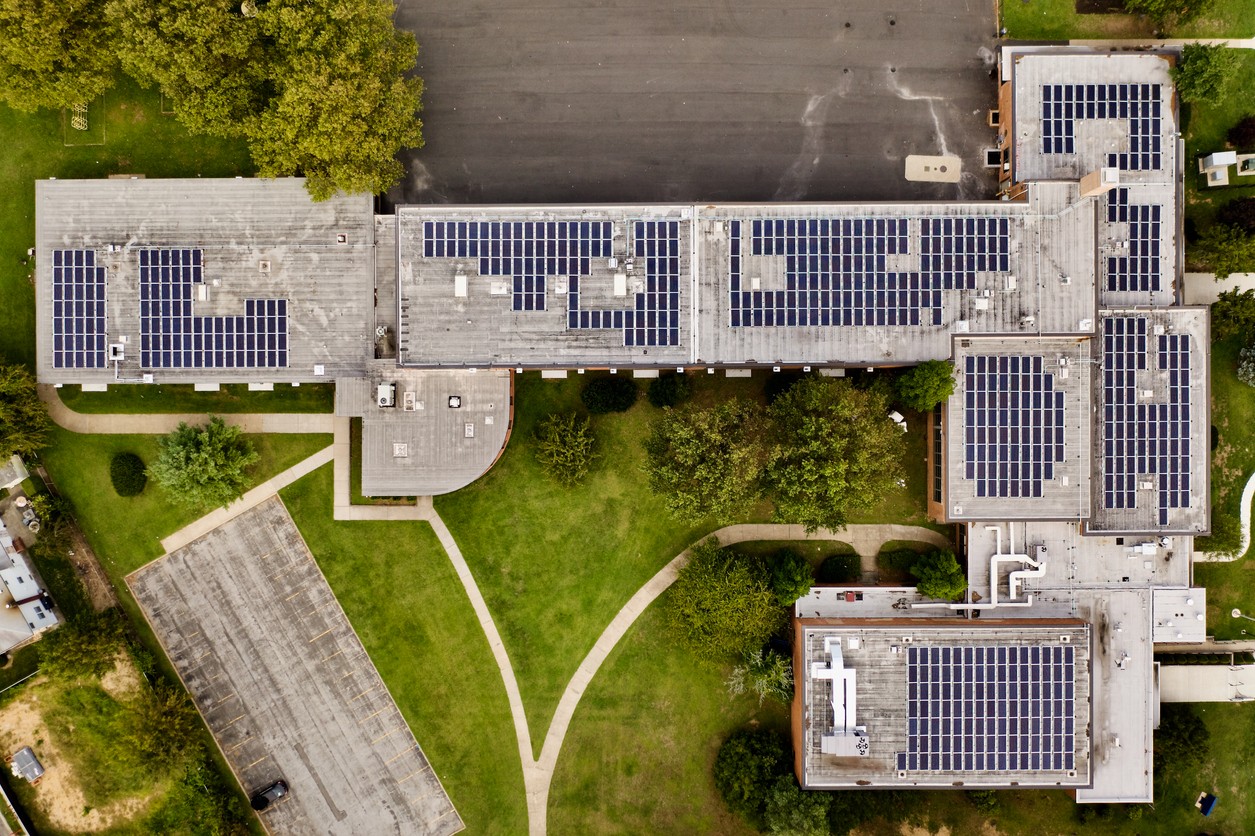 There is a long list of benefits that are a mixture of cost-savings and energy efficiency. Going solar is also an opportunity to maximize energy product while decreasing energy usage without giving up quality, comfort, or production. Here is a partial list of the benefits of going solar.
There is a long list of benefits that are a mixture of cost-savings and energy efficiency. Going solar is also an opportunity to maximize energy product while decreasing energy usage without giving up quality, comfort, or production. Here is a partial list of the benefits of going solar.
- Rising property values – Properties with solar arrays are increasing in value because of the lower cost of energy, tax credits, transferrable warranties, and a reduction in the cost of doing business.
- Lowered utility costs – The cost of solar energy remains the same and that is lower than energy from the grid. In addition, there are no more yearly increases in the cost of energy, and you are free to use energy when you need to without fear of going outside the tier rate. All solar energy is the same cost regardless of the time of day or the amount of energy that you use.
- Federal tax credit – For 2022 the federal tax credit for going solar is 26%. That benefit includes commercial solar systems. State tax credits or rebates are also available. The total savings, thanks to incentives, is quite positive.
- Energy Independence – You decrease or eliminate reliance on your local utility, and you increase self-reliance thanks to the solar array. That means you no longer have to worry about Power Safety Public Shutoffs, rolling blackouts, or the lack of energy during peak usage. It also means you do not pay different rates for electricity during different times of the day.
- Greater control of future energy costs – You have the options of building a solar array that meets your energy demands today, tomorrow, and into the future. With easy to scale designs you can add more solar panels later or replace units with new technology as needed.
- Potentially better cash flow – You will no longer have to pay huge monthly energy bills. Reinvest that savings into your business.
- Reduction in overall operating costs for your business, which can also mean it is cheaper to produce your products or services.
Cons of Commercial Solar
There are very few cons for a commercial investment in solar energy. Most of these points are worthy of consideration, but there are workarounds for them too. Those include:
- The constant changes in tax credits, governmental compliance, and other small issues that can be more of a nuisance.
- Upgrades to the structural support for your roof to make it meet code for solar panel placement.
- A cash investment depending on the type of solar contract you sign
- Shading issues, such as clouds, weather, and even trees.
These minor concerns may not impact every commercial client. As your solar contractor in California, we can tell you that most buildings can handle solar installations. Most shading issues are preventable except weather-related shading. If your location is prone to cloudy days, then we adjust the amount of energy your roof can produce to compensate or the amount of storage needed so that weather has the least possible impact on what you do.
Ready to Go Solar?
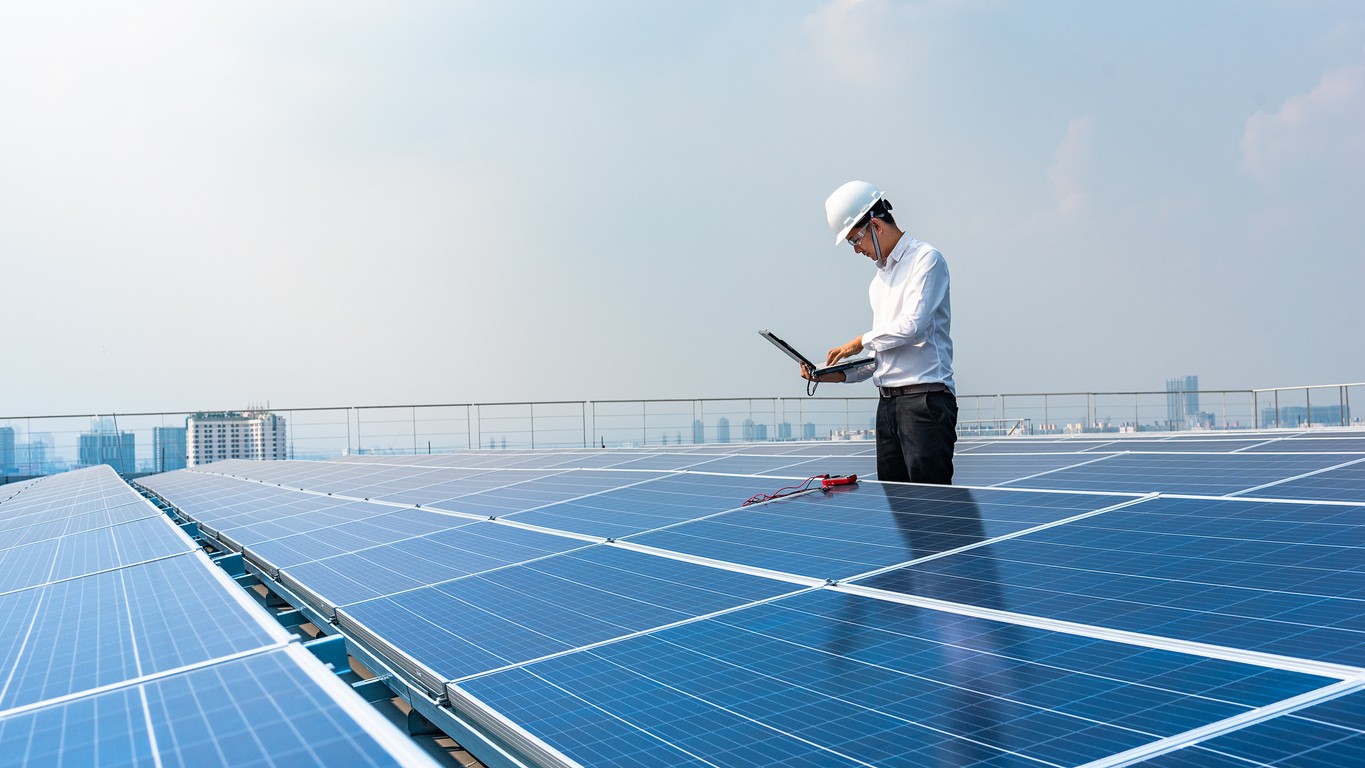 Coldwell Solar’s services include evaluation, design, and installation of commercial solar arrays. Because each property is different and the energy needs of each business also differs, we start with an evaluation of your property, its energy production capabilities, and the business’ energy needs – including the energy needs for the future.
Coldwell Solar’s services include evaluation, design, and installation of commercial solar arrays. Because each property is different and the energy needs of each business also differs, we start with an evaluation of your property, its energy production capabilities, and the business’ energy needs – including the energy needs for the future.
We work with you every step of the way and provide data that shows you how to make an informed decision about going solar, energy production, costs, and service.
If you are ready to start collecting information, our team would be happy to answer your questions and set up a site inspection for your energy production and needs.

